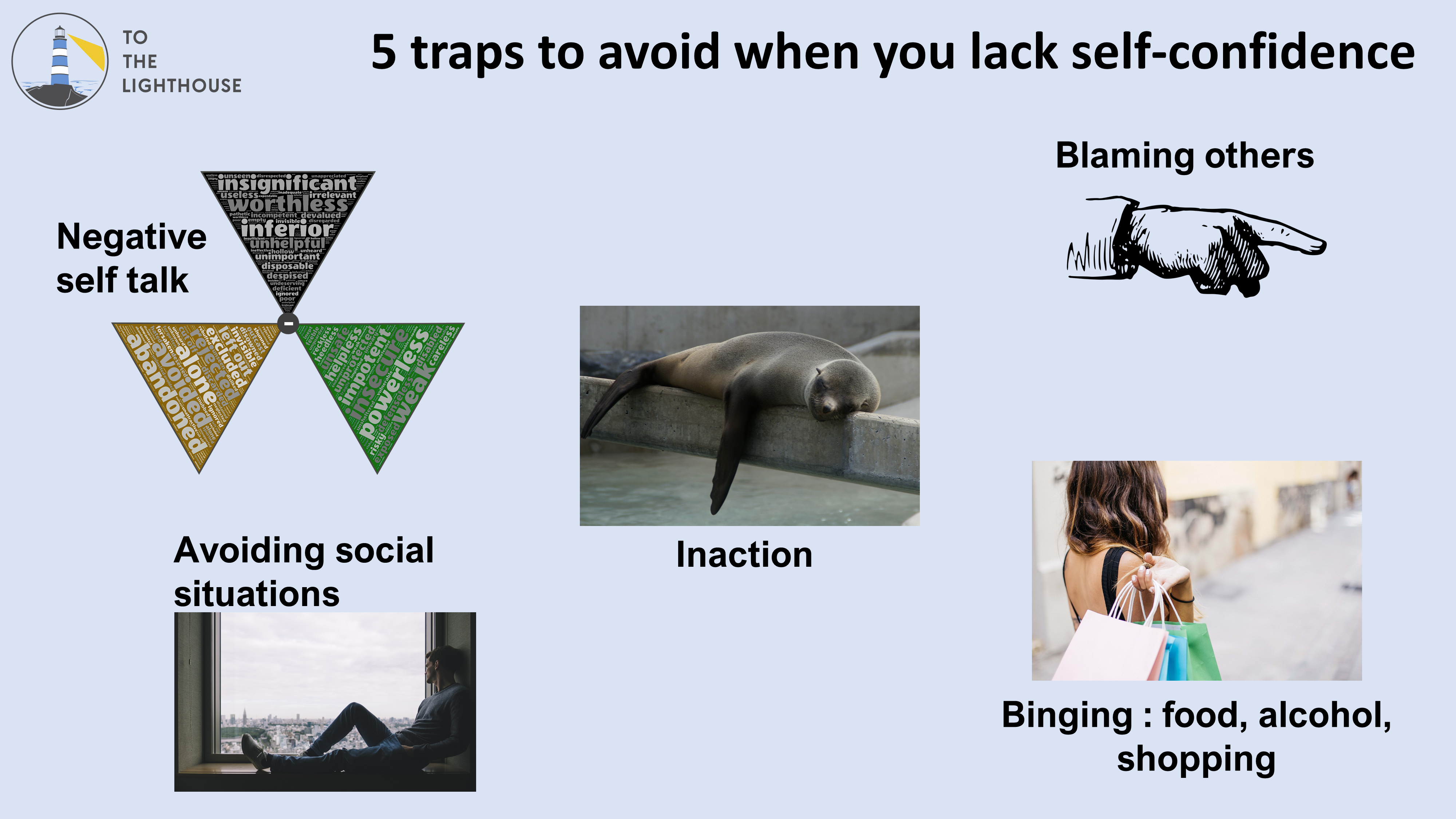When we have suffered a major setback, often our self-confidence takes a hit. We start to doubt ourselves and fall more easily into bad habits. Here are 5 traps you can avoid when your self-confidence has taken a hit.
Negative self-talk

The most common trap when you lack self-confidence is negative self-talk. You know that voice in your head that tells you things like: “You’re not good enough.” “You’ll never make it.” “You’re always going to be alone.” It seems next to impossible to quiet that voice, but there are a few things you can do to deal with it.
The first thing you can do is to consciously decide to turn it off. You can use a simple visualization technique to turn off the chatterbox in your head. Imagine you are “changing the channel” and decide to think about or focus on something else. Click on the remote control and zap to another channel. If the voice comes back, keep zapping.
A more lasting technique is to learn how to disrupt your negative thought patterns. We all have negative thinking patterns that we fall into sometimes. You know them – the “I should have’s…”, “always” and “never”, mind reading and fortune telling. You can disrupt these thought patterns simply by taking a moment to think about the alternatives. In other words, look at the other side of the story. When we are in one of these patterns, we usually have on blinders. Finding a more balanced view will disrupt the pattern.
Blaming others

One of the negative thinking patterns is refusing to take personal responsibility. It’s much easier to blame others for situations we find ourselves in than taking responsibility for what we can. There are things we control, and things we do not control. Think about your current situation solely from the perspective of what you can do control. What can you do differently, how can you see things differently? Take responsibility for the things you do control and keep moving forward.
Avoiding social situations

When we feel bad about ourselves, many of us withdraw. We shut ourselves off from our social network, preferring to get back to them when we feel better. But the people who love you most are the ones who can help you feel better about yourself. Ask someone you love and trust to be your confidence buddy. Someone who cares about you with whom you can share, and who will support you. Make a determined effort to meet or talk to them on a regular basis. We all go through hard times. Having someone else remind us about our strengths, about our better times, can help us get through.
Binging: food, alcohol, shopping….

Looking for something to fill the emptiness inside us is a common trap. Binge eating, drinking, and shopping are just a few examples of things we do to try to fill that emptiness. Unfortunately, over indulging in things like these don’t actually fill the hole, and often they make it deeper. Instead, look for other ways to fill your emotional gas tank. There are hundreds of little and big things which make us feel good. Take a few minutes to write down the things that make you feel good. Make a concerted effort to do one or more every day. Small ones can be done every day. Plan the bigger ones for once a week.
Inaction

It is way too easy to be paralyzed by self-doubt. Everything looks too hard or even impossible. So, we curl up in a ball on our couch and we don’t do anything. We avoid making decisions, big and small. We avoid making plans because we can’t imagine it’s possible to enjoy ourselves.
Dopamine is the “feel-good” hormone, creating feelings of pleasure and satisfaction. When we strive towards goals and achieve them, dopamine is released in our systems. Just working towards a goal can make you feel good. So, start by setting one small, short-term goal. When you achieve it, celebrate in some way. The celebration is as important as the achievement – so congratulate yourself and feel pride in achieving it. And then set another one – because the striving is as powerful as the achievement.
It’s hard to come back from a major hit in your self-confidence, but you can do it. If you are determined to not only regain your self-confidence, but to more firmly establish it, find out more about 28 days to Rebuild your Self-Confidence.


